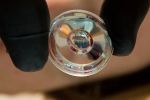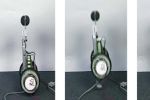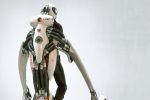| regarding | user | just commented |
|---|---|---|
| Electricity in the Air | whitey9999 | The effect of magnetism is |
| VASIMR Plasma Rocket Passes Power Test, Announces Launch Date | otoko_tenshi | can this much thrust get it |
| Singularity Summit 2009: Thus Spake Kurzweil | otoko_tenshi | hey! if the virtual brain |
| Singularity Summit 2009: Supreme Mathematics of Gods and Earths | otoko_tenshi | if its feelings can be hurt, |
| Laser Watch of Tomorrow | otoko_tenshi | hmmm gonna be a hard toss |
Popular on Popsci
Most Viewed
Susannah F. Locke
- Augmented Google Earth Gets Real-Time People, Cars, Clouds
- Cocaine Vaccine Nullifies the Effect, Helps Abusers Quit
- Three Lunar Spacecraft Agree: There's Water On the Moon
- Nasal Spray for Better Memory
- Cheap Artificial Hymens: the Easy Way to Revirginate
- Hello, Ardi: New Oldest Humanoid Fossil A Million Years Older Than Lucy
- How Your Body Packs Two Meters of DNA Into a Six-Micron Cell Nucleus
Most Commented
Susannah F. Locke
- How Your Body Packs Two Meters of DNA Into a Six-Micron Cell Nucleus
- Cheap Artificial Hymens: the Easy Way to Revirginate
- Cocaine Vaccine Nullifies the Effect, Helps Abusers Quit
- Nasal Spray for Better Memory
- Hello, Ardi: New Oldest Humanoid Fossil A Million Years Older Than Lucy
- Augmented Google Earth Gets Real-Time People, Cars, Clouds
- Three Lunar Spacecraft Agree: There's Water On the Moon
Most Emailed
Susannah F. Locke
- Cocaine Vaccine Nullifies the Effect, Helps Abusers Quit
- Three Lunar Spacecraft Agree: There's Water On the Moon
- How Your Body Packs Two Meters of DNA Into a Six-Micron Cell Nucleus
- Cheap Artificial Hymens: the Easy Way to Revirginate
- Nasal Spray for Better Memory
- Hello, Ardi: New Oldest Humanoid Fossil A Million Years Older Than Lucy
- Augmented Google Earth Gets Real-Time People, Cars, Clouds








